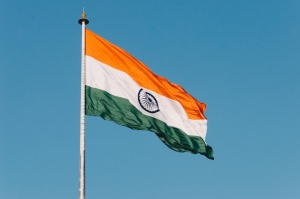In Paytm's case, time is of the essence. The Alibaba and SoftBank-backed digital wallet faces intensifying competition from global rivals: Google, Amazon and especially WhatsApp Pay, which is set to enter the Indian payments market soon. Facebook-owned WhatsApp has 300 million users in India, exceeding Paytm's 230 million by a healthy margin. The popularity of WhatsApp with Indian users could prove a big challenge for Paytm.
"Indians love WhatsApp, and will love the convenience of transacting through the app," tech analyst Prabhu Ram told the Indo-Asian News Service. "The rapid adoption of digital payments in India will be driven by WhatsApp, riding on its vast user base and strong vernacular language focus."
Ram believes that WhatsApp Pay could be a transformative force in India, ultimately boosting financial inclusion on the subcontinent. He expects that it will attract SMEs and entrepreneurs, who after building credit with the platform will be able to borrow money more easily from banks.
For its part, Paytm is betting that a co-branded credit card with Citibank offering plenty of perks will attract new users and some potential big spenders. One of the prominent features of the card is unlimited 1% cashback - a first for an Indian credit card - auto-credited to the card on a monthly basis. Additionally, users who spend more than INR 50,000 a year will have their INR 500 annual fee waived.
The Paytm First Card "will help spur large-ticket cashless payments" in India, Vijay Shekhar Sharma, chairman and CEO of Paytm parent One97 Communications, said in a statement. "We are confident of getting a very good response from our customers," he added.
Meanwhile, ride-hailing giant Ola plans to burn cash to win business for its plastic venture with Visa and SBI. Every ride-hailing juggernaut now has hefty banking ambitions, because let's face it, investors like the idea of connecting giant user bases with financial services more than food delivery - the other segment into which the ride hailers have all jumped. Ride hailing and food delivery are saturated segments in India anyway.
In a fragmented payments market like India's, where there are more than 100 players competing in the digital wallet segment, how do you stand out? By giving money away, if your backers have deep enough pockets, and Ola is backed by SoftBank and Naspers, so it can afford to go on this shopping (for customers) spree.
Ola will offer users of its credit card lots of cash back: 5% on flight bookings, 6% on international hotel bookings, 7% on taxi rides, 20% on domestic hotel bookings and more than 6,000 restaurants, and 1% on everything else.
Keep in mind that those subsidies are not only intended to win business for Ola and its partners but more importantly, advance India's financial-inclusion goals.
"We are committed to creating an inclusive ecosystem where mobility and financial services go hand in hand in leading growth and development," Nitin Gupta, CEO of Ola financial services, told TechCrunch.

